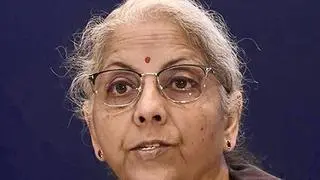There were consistent shortfalls in government’s contribution between 2006-07 and 2011-12 towards pension schemes run by retirement fund body EPFO, official auditor CAG has said while asking it make the payment in time.
“There were consistent shortfalls in receipts of contributions from the central government as against claims preferred during 2006-07 to 2011—12. Central government should remit its contribution to EPFO in time,” the Comptroller and Auditor General of India (CAG) said in its report for 2011-12 tabled in Parliament this week.
At present, the central government contributes 1.16 per cent of workers’ basic wages, including basic pay and dearness allowance, towards Employees’ Pension Scheme 1995 (EPS-95) run by the Employees’ Provident Fund Organisation (EPFO).
Under the scheme, employers contribute 8.33 per cent of the basic wages towards the EPS-95. Thus, every month 9.49 per cent of the basic wages of a worker is contributed to his pension account.
According to the CAG report, in 2006-07 EPFO demanded Rs 1,805.07 crore—— Rs 870.57 crore as arrears of government’s share and Rs 934.50 crore as government’s contribution due for the fiscal.
However, the government paid Rs 1,340 crore only leaving shortfall of Rs 465.07 crore or 25.76 per cent of what claimed by the EPFO.
As per the data in the report, the shortfall in government’s contribution kept rising till 2011—12. The shortfall rose to 1,943.99 crore in 2011-12 or 59.02 per cent of the demand made by the EPFO.
The EPFO had claimed Rs 3,293.99 crore in 2011—12 from government as its contribution towards the EPS-95,—— Rs 1,425.53 crore as arrears and Rs 1,868.46 crore as the amount due for the fiscal. But government paid Rs 1,350 crore only.
However in its reply to the CAG on the issue, the EPFO said, “Delay in contribution made by central government has no immediate adverse effect on pension obligations.”
But the CAG held “the reply of EPFO regarding adverse effect is not acceptable as shortfall in receipts of contributions affected the EPS corpus including investments and interest thereon”.







Comments
Comments have to be in English, and in full sentences. They cannot be abusive or personal. Please abide by our community guidelines for posting your comments.
We have migrated to a new commenting platform. If you are already a registered user of TheHindu Businessline and logged in, you may continue to engage with our articles. If you do not have an account please register and login to post comments. Users can access their older comments by logging into their accounts on Vuukle.